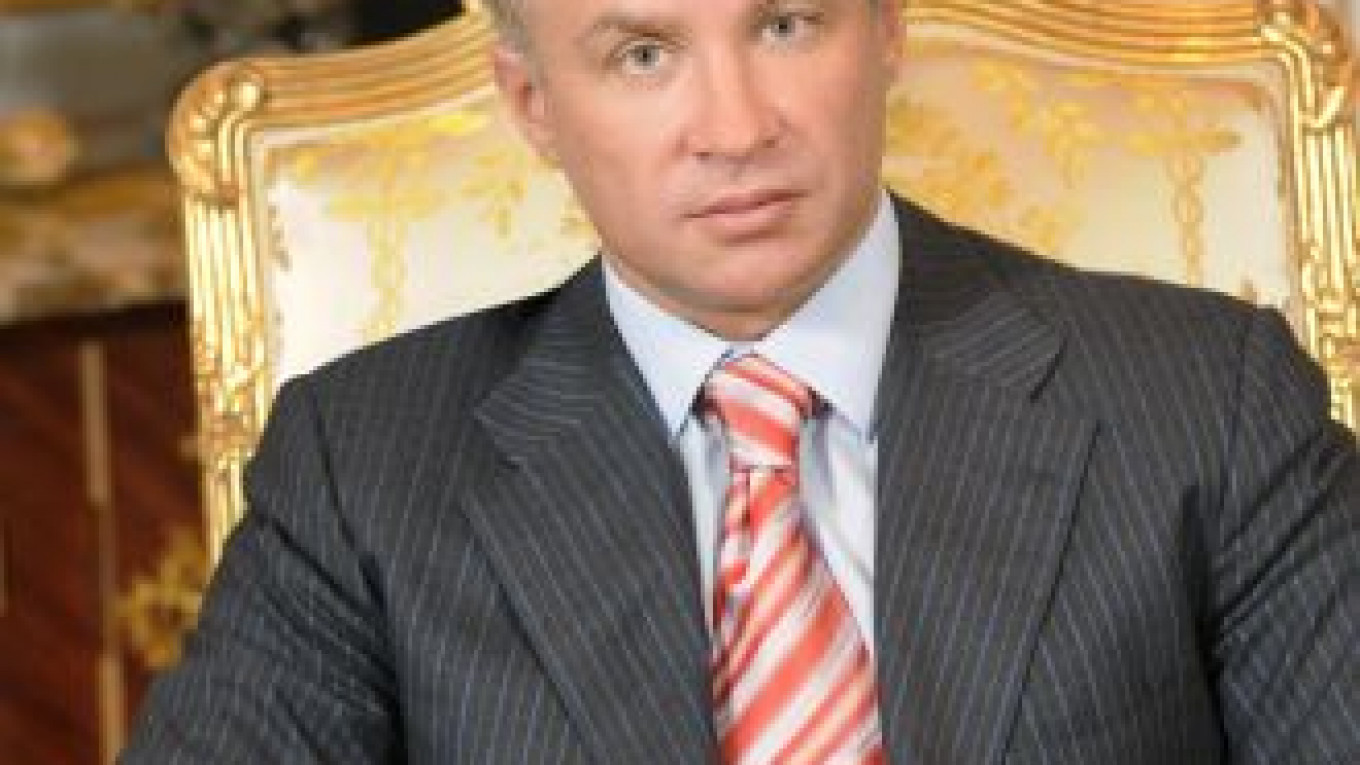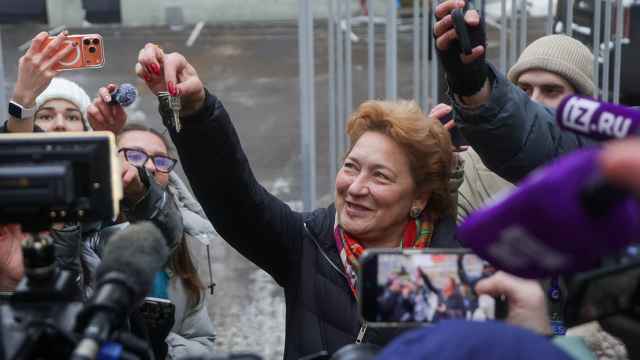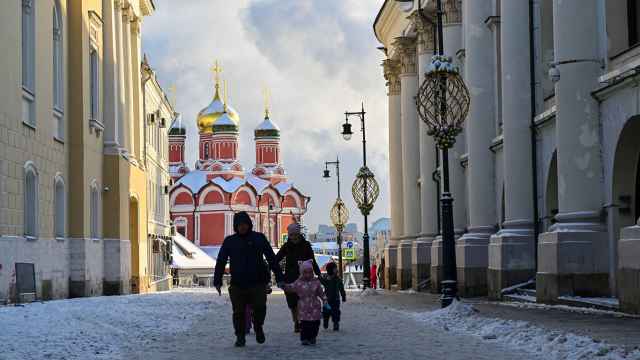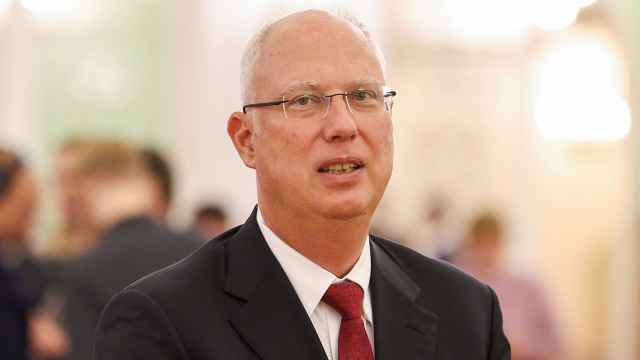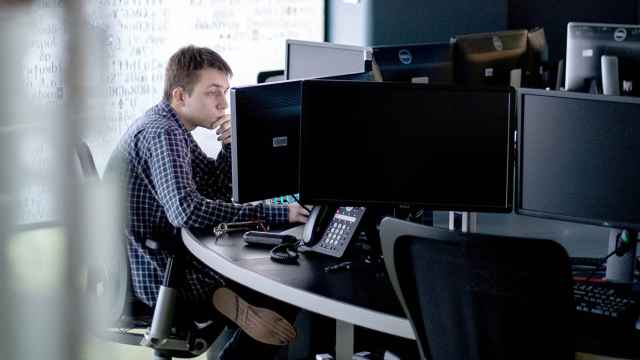Editor's note: This is the first story in an occasional series marking 20 years after the Soviet collapse.
Myronivsky Hliboproduct may be a drop in the sea of international companies traded on the London Stock Exchange. But its listing marked an important milestone for Ukraine's post-Soviet economy.
It was the first company to represent one of the country's biggest industries — agriculture — on the bourse's main market, gaining a badge of quality that many companies covet worldwide.
Like Ukraine, the three Baltic states have also spawned internationally recognized entrepreneurs. But unlike many of Ukraine’s billionaires, these people largely relied on something other than farming or natural resources: technology. Here’s a snapshot of the three countries’ leading businessmen.
Estonia
Entrepreneur: Jaan Tallinn, co-developer of Skype technology and co-founder of venture firm Ambient Sound Investments
Sector: Investment
Tallinn founded Ambient Sound with the three other developers of the software for Skype, a service for voice and video calls that Microsoft purchased for $8.5 billion in May.
At its inception in 2003, the investment company held a minority stake in Skype, while the majority belonged to a Swede and a Dane. It sold the stake to eBay at the end of 2005 and restyled itself as a private investment vehicle.
Jaan is responsible for overall strategy in a team of about 10 people who now manage 100 million euros. There is no particular industry focus, but potential investment targets must base their business on research and development, own intellectual property in their area, and demonstrate global ambitions while being located in Eastern Europe, Russia or Asia.
Investments include Blaast, a Finnish company that is developing a cloud-based platform for mobile devices, and Idapted, which has offices in China and the United States and offers English-language learning services for Chinese students via live online tutors.
Jaan continues to be involved with Skype, where he is one of the lead system architects.
Lithuania
Entrepreneur: Ilja Laurs, founder and chief executive of GetJar, an application store whose download count is second only to Apple.
Sector: E-commerce
Born in Lithuania, he went to high school in Ohio as part of a U.S. student exchange program. Back in his home country, he studied economics at Vilnius University and upon graduation launched more than 20 successful projects dealing with online and mobile services.
The GetJar app store appeared in 2005 and won the hearts of mobile phone users with its openness to all major platforms such as Android, BlackBerry, Windows Mobile, iPhone and Symbian. In 2009, he moved his main office from Vilnius to San Mateo in the heart of California’s Silicon Valley.
The company, backed by renowned investment funds Accel Partners and Tiger Global Management, provides 75,000 mobile applications to consumers in more than 200 countries.
Latvia
Entrepreneur: Peteris Smidre, founder and director of Baltkom, a cable television and communications company acquired by France’s AXA Private Equity and a partner in April.
Sector: Telecoms
Baltkom started out in 1991 as a cable television company to capitalize on the need for news and entertainment diversity as Soviet propaganda descended into oblivion. The company expanded to include a broader range of services over the years. It sold its mobile operator to Sweden’s Tele2 for $277 million in 2000 and bought seven local Internet providers in 2007.
AXA Private Equity, which manages $25 billion in assets, and Poland’s much smaller Resource Partners have jointly invested an undisclosed amount in Baltkom, describing the company as Latvia’s largest cable television operator.
Smidre, who remains chief executive, said the partnership will help the company grow through new services and acquisitions.
— Anatoly Medetsky
Ukraine's president bestowed the title of the Hero of Ukraine on the majority owner and chief executive, Yury Kosyuk, several months later. The businessman regained the status of a billionaire recently as the price of the stock bounced back after the global recession.
As proud as he might have been about the share float in 2008, he didn't unload the news on his parents, who spent much of their careers as Soviet schoolteachers.
"Like most elderly people here, they probably don't understand what an initial public offering means," Kosyuk, 43, said in an interview. "I don't share business stuff with them that much."
Kosyuk is one of those businesspeople in Ukraine who exemplify the long way Ukraine has gone since the collapse of the Soviet Union 20 years ago — precipitated by an Aug. 19, 1991, coup by hard-liners — gave way to capitalism. The country boasts eight billionaires, and three of these fortunes relate to farming.
Among the Soviet breakaways, Ukraine places a distant second to Russia, which boasts 101 billionaires on the Forbes list of the world's richest people, thanks to its much larger economy. Kazakhstan is the only other former Soviet republic in this league, being a home to five owners of such wealth.
After the Soviet breakup, it took Kosyuk 17 years to test the waters in several industries, settle on agriculture, and build a poultry and grain-growing business whose stock met the strict requirements for admission to the LSE main market.
"I would say it took only 17 years," Kosyuk said. "As a reference point, consider the condition of the industry and the people after the Soviet breakup. The people had to tear up the baseline principles we had been taught by our parents and schools."
Since the stock began trading, his personal fortune has swelled to $1.5 billion, making him the sixth-richest Ukrainian.
Myronivsky was the second Ukrainian company to arrive at the LSE main market. Fellow billionaire Konstantin Zhevago's iron ore producer Ferrexpo, which represents another of the country's biggest industries, was the pioneer.
The latest — and third — arrival is billionaire Oleg Bakhmatyuk's egg business Avangard, which listed last year.
In the waning days of the Soviet Union, Kosyuk's parents strongly advised their son to enroll in the Kiev Food Technology Institute, where they had acquaintances to shepherd him through the exams. He gave in, abandoning his dream of training to become a military officer, a career that he said every Soviet boy cherished. Instead of a uniform, he is now known to have developed a taste for Italian Kiton suits and Testoni shoes.
He doesn't lament his choice, but offered a reason that has nothing to do with money and clothing for his ultimate decision to quit the military — compulsory two-year military service as a conscript, right in the middle of his institute studies.
"While in the armed forces, I realized that I wasn't cut out for it." he said. "A lot of things they do aim to follow a routine rather than sensible decisions."
His company Myronivsky has grown so big that it controls half of the domestic poultry market and exports to Asian and Middle Eastern countries like Turkey and Syria, boosting its output by 26 percent to 360,000 tons and profit by 35 percent to $215 million last year.
"Investors like the company's growth track record," said Daniel Wakerly, an analyst who covers the stock at Morgan Stanley in London. "It more than trebled its poultry production capacity during the past five years."
Yet, it continues to expand at one of the world's fastest rates. The company is building a new $750 million poultry farm that will start operating at full capacity in 2015, adding another 220,000 tons of chicken meat — or 60 percent — to its annual output.
"This industry re-emerged in Ukraine only recently, hence the high speed of development," said Alexander Tsependa, an analyst at Troika Dialog in Kiev. "This makes it different from the mature markets."
With the new farm, Myronivsky plans to increase export from the current 7 percent of sales. The ambitions include bringing the poultry to European Union grocery stores this year. The company also has appetite for acquisitions in Europe, Africa and the Middle East.
Kosyuk began honing his business skills at the Kiev Commodities Exchange, where he bought and sold metals and grain before he graduated from the institute in 1991, the year the Soviet Union collapsed.
He waded into several other sectors in the 1990s, including trade in imported natural gas, but the grain business prevailed. To expand in grain, Kosyuk acquired his first silos in the mid-1990s — and with them got animal feed plants that were standing idle because their customers — including poultry farms — had gone bankrupt.
The idea to put these inadvertent plant investments to work prompted him to branch out into the poultry industry. By the time Kosyuk established Myronivsky and got his first poultry farm up and running in 1998, he had realized that grain trade was unlikely to show spectacular progress in a market dominated by global players such as U.S.-based Cargill.
At the same time, a tour of leading poultry-producing countries — including the United States, Brazil, China and Germany — suggested that the industry had room for competition from Ukraine, while at home there were virtually no rivals. Kosyuk focused on this promising prospect, closing his last grain-trading project in 2001.
His gastronomic tastes have also changed in favor of chicken.
"It almost ousted pork from my menu," he said. "I eat pork only in my home-cooked borshch once a week."
Unlike most international poultry producers, Myronivsky has built an impressive land bank and grows all the grain it needs to feed the chickens. The strategy increased its margin of earnings before interest, taxes, depreciation and amortization to 40 percent, at least double that of most other rivals worldwide, said Tamara Levchenko, an industry analyst with the Dragon Capital investment company in Kiev.
There is one other thing that the businessman has kept in mind: Many foreign producers complained to him during his reconnaissance trip that they had little bargaining power with supermarket chains. But German poultry producer Wiesenhof had no such problem, telling an inquisitive Kosyuk that the reason was their large, 50 percent share of the local market.
This information prompted Kosyuk to push for fast expansion. He found a generous ally in the World Bank's private sector investment arm, the International Financial Corporation, which provided several loans to help Kosyuk build feed mills and slaughter plants and buy farmland and equipment.
Kosyuk conceded that IFC, which held 6.3 percent of his company's equity from 2005 to 2007, was also a good management teacher, setting up a board of directors and preaching the value of transparency before Myronivsky went public. It still shows.
"Looking at the agrarian companies I cover, this one is a model of corporate governance," said Levchenko at Dragon Capital.
All there's left from the Soviet times at Myronivsky is the name, inherited from its original feed plant, and a couple of foremen who haven't yet retired.
"Everything else has been built from scratch," Kosyuk said.
A Message from The Moscow Times:
Dear readers,
We are facing unprecedented challenges. Russia's Prosecutor General's Office has designated The Moscow Times as an "undesirable" organization, criminalizing our work and putting our staff at risk of prosecution. This follows our earlier unjust labeling as a "foreign agent."
These actions are direct attempts to silence independent journalism in Russia. The authorities claim our work "discredits the decisions of the Russian leadership." We see things differently: we strive to provide accurate, unbiased reporting on Russia.
We, the journalists of The Moscow Times, refuse to be silenced. But to continue our work, we need your help.
Your support, no matter how small, makes a world of difference. If you can, please support us monthly starting from just $2. It's quick to set up, and every contribution makes a significant impact.
By supporting The Moscow Times, you're defending open, independent journalism in the face of repression. Thank you for standing with us.
Remind me later.


